Medieval Art
1/83
Earn XP
Description and Tags
ArtApp
Name | Mastery | Learn | Test | Matching | Spaced |
|---|
No study sessions yet.
84 Terms
Early Medieval Art
Artistic traditions from 5th to 11th century.
Fall of Rome
Event in 476 CE marking the end of Roman rule.
Animal Style
Art featuring interlaced animals in designs.
Church Patronage
Church's role in supporting and influencing art.
Manuscript Illumination
Decorative art form involving illustrated manuscripts.
Sutton Hoo Treasure
Finest example of early medieval metalwork.
Tara Brooch
Gold and silver jewelry showcasing craftsmanship.
Lindisfarne Gospels
Decorative manuscript from c. 700 CE.
Book of Kells
Illuminated manuscript with intricate designs.
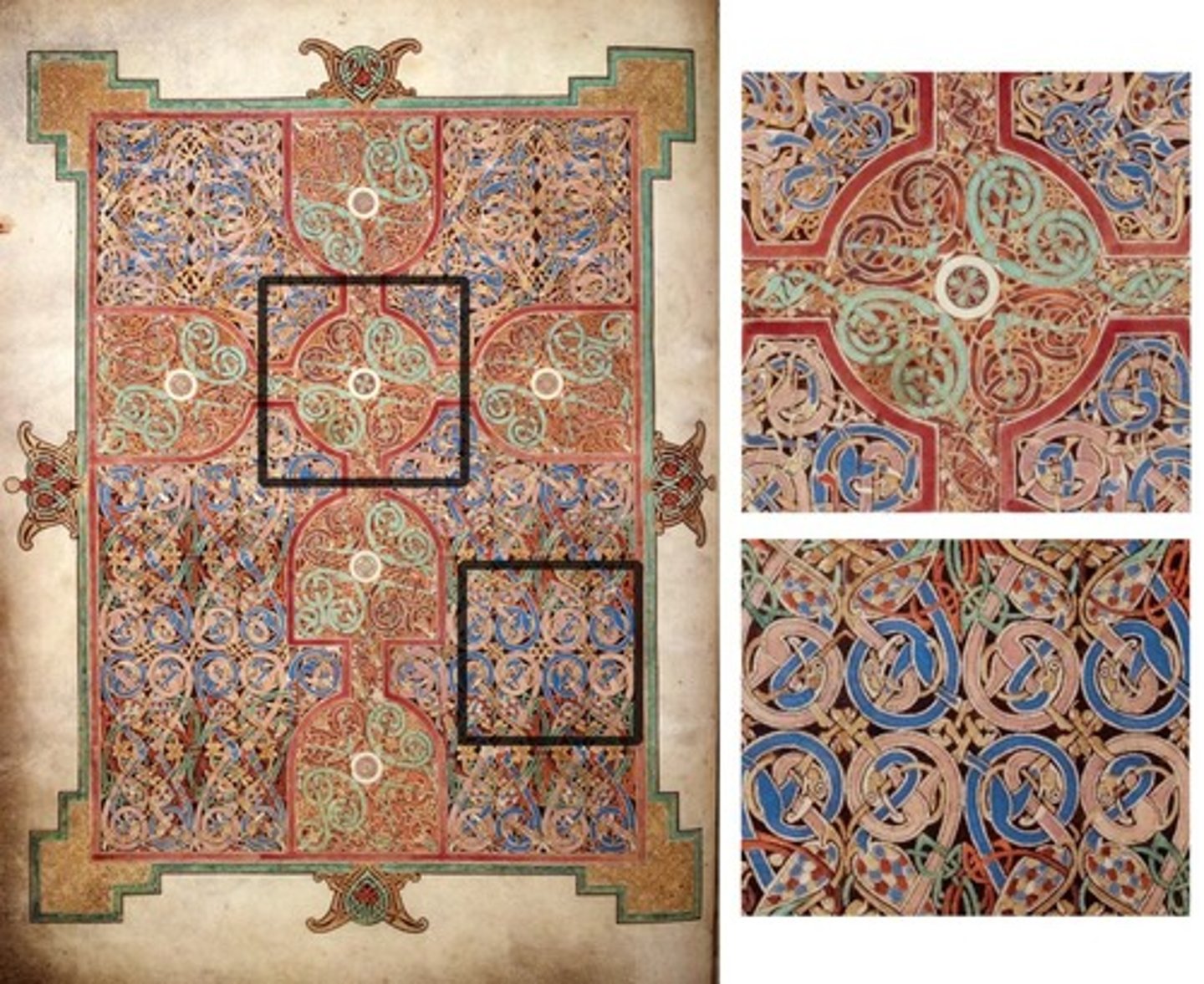
Carolingian Art
Art influenced by Roman styles under Charlemagne.
Coronation Gospels
Key example of Carolingian illuminated manuscripts.
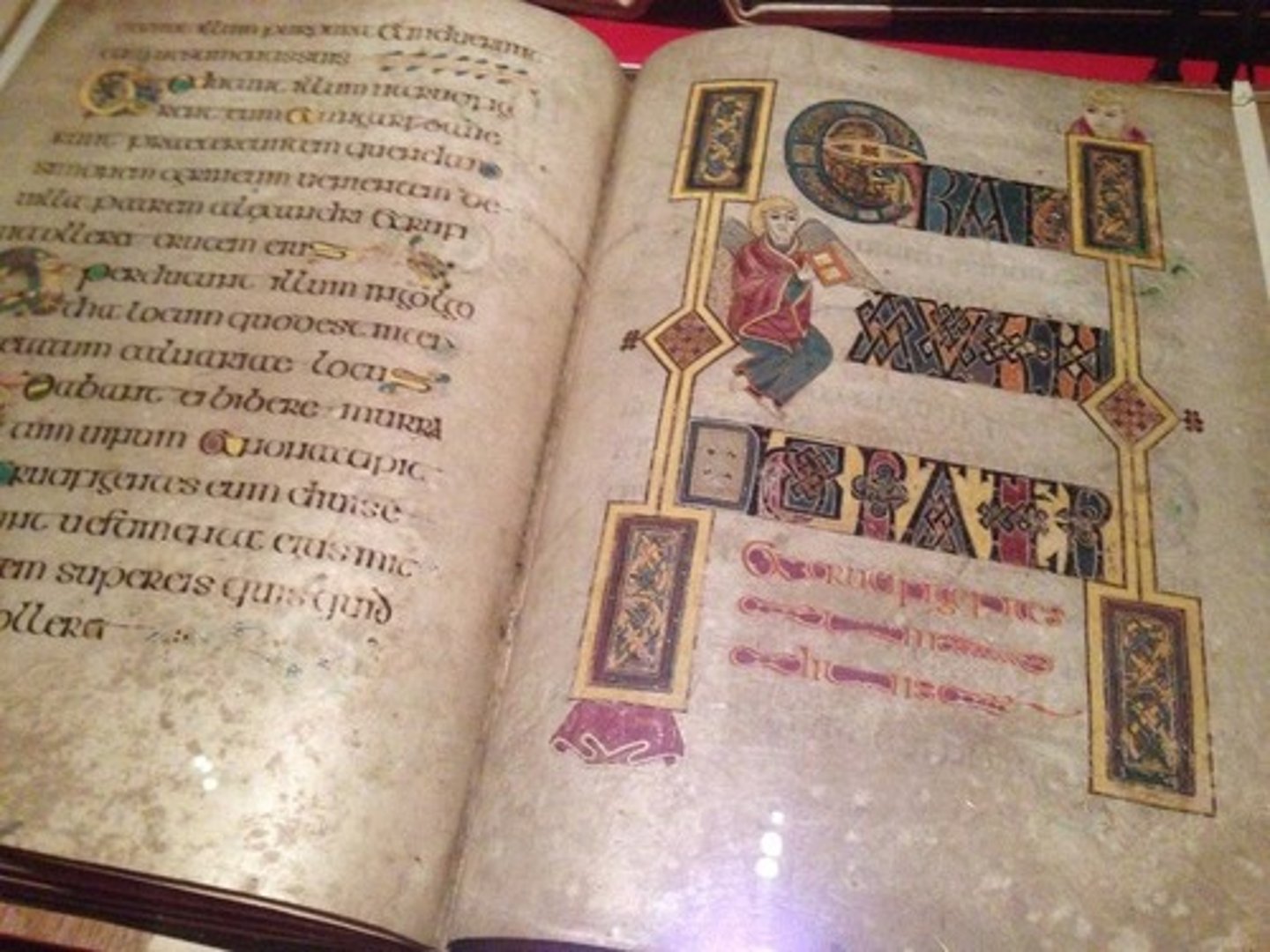
Ottonian Art
Art style building on Carolingian traditions.
Early Basilicas
Church architecture adapted from Roman models.
Carolingian Innovations
Complex structures developed from Roman architecture.
Ottonian Architecture
Features vaulted ceilings and elaborate portals.
Stylized Figures
Figures that emphasize spirituality over realism.
Virgin of Essen
Sculpture reflecting spiritual significance in art.
Precious Materials
Use of gold and enamel in sculptures.
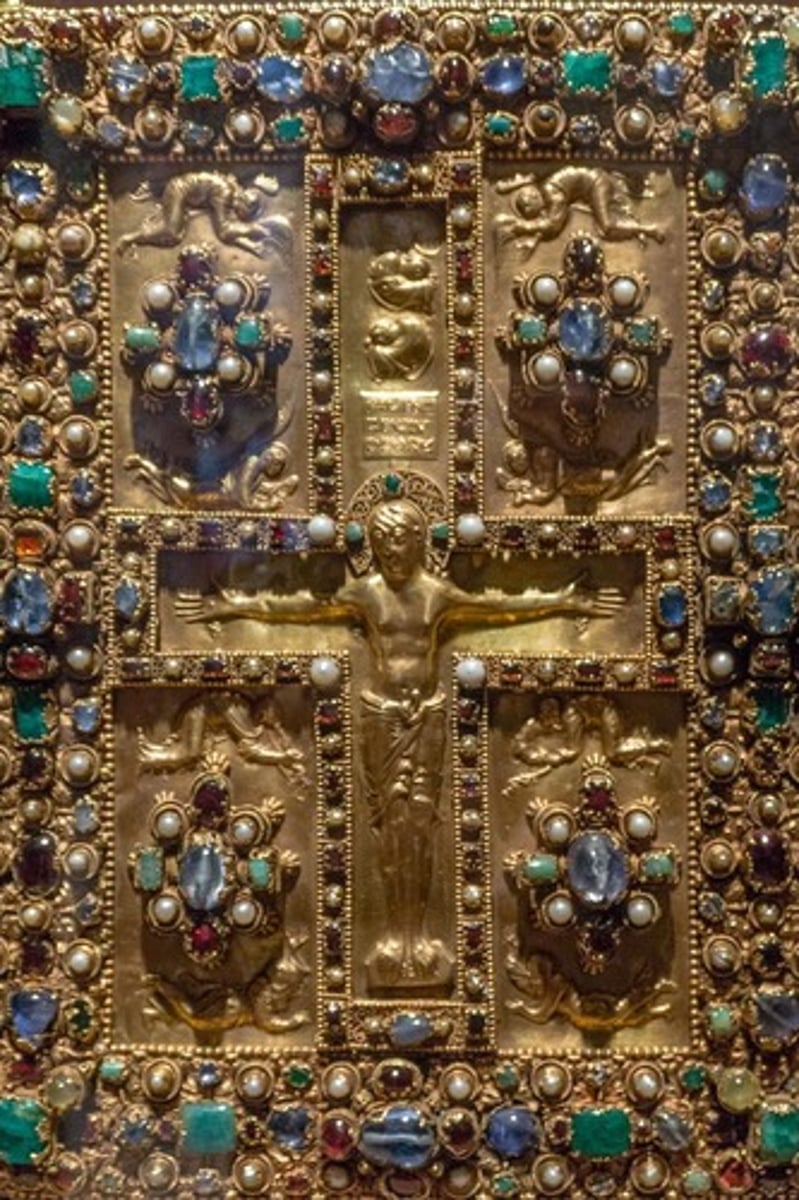
Narrative Scenes
Art depicting religious stories for all audiences.
Symbolic Representation
Use of symbols to convey deeper meanings.
Christian Themes
Dominant motifs reflecting the Church's influence.
Monastic Production
Creation of decorative books in monastic scriptoria.
Geometric Designs
Patterns used in Early Medieval ornamentation.
Metalwork Sophistication
High skill level in early medieval metal crafts.
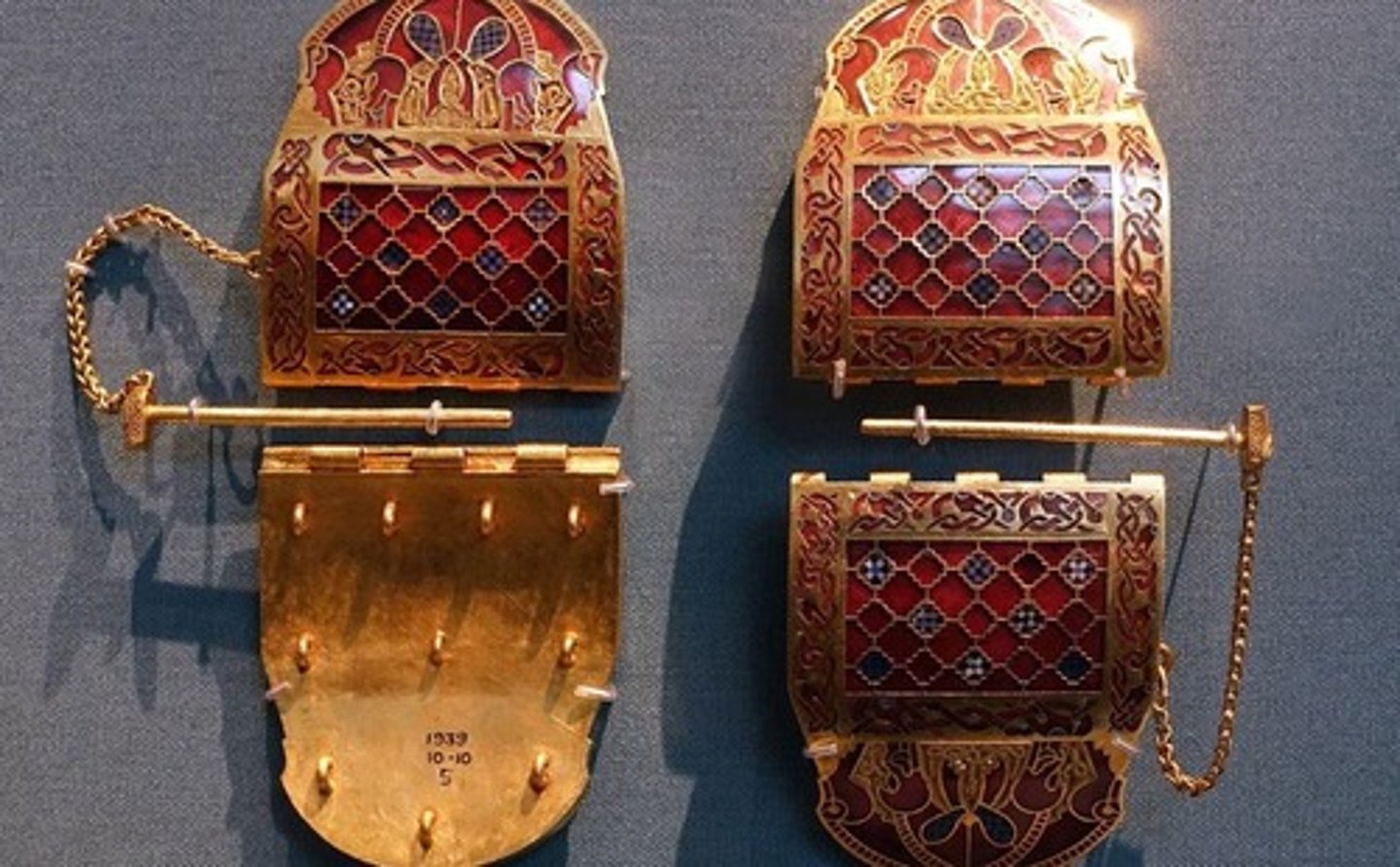
Religious Focus
Art primarily serving religious purposes.
Dominant Art Forms
Manuscripts, church decoration, and metalwork.
Transition Period
Artistic evolution following the Carolingian era.
Ivory Carvings
Artistic works made from ivory during Ottonian period.
Elaborate Portals
Decorative entrances in Ottonian architecture.
Abstract Symbols
Non-literal representations conveying spiritual ideas.
Craftsmanship
Skill and artistry in creating metalwork and jewelry.
Gothic Art
Artistic movement transforming European visual culture.
12th Century France
Origin of Gothic art and architecture.
Pointed Arches
Architectural feature allowing for greater height.
Ribbed Vaults
Structural innovation enhancing interior space.
Flying Buttresses
Support structures enabling larger windows.
Chartres Cathedral
High Gothic masterpiece known for stained glass.
Sainte-Chapelle
Rayonnant Gothic structure with delicate tracery.
Notre Dame
Iconic cathedral with innovative flying buttresses.
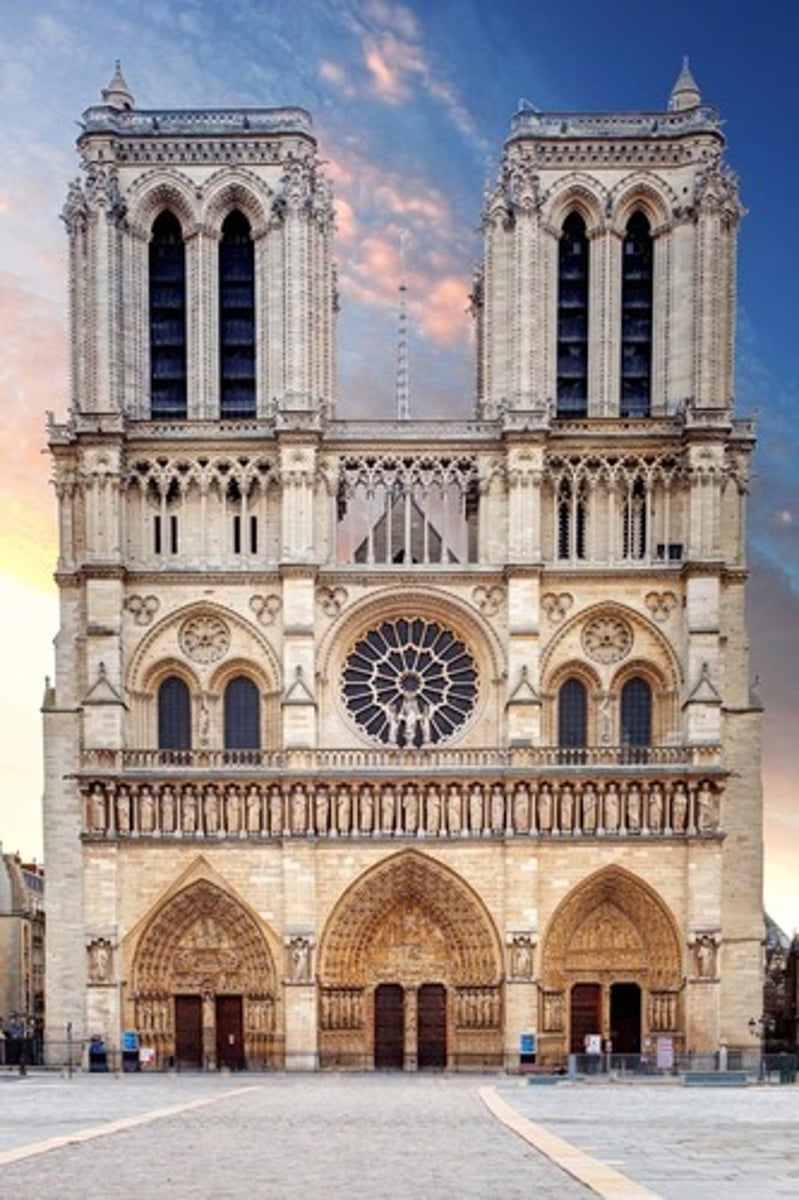
Early Gothic Sculpture
Rigid figures attached to architectural elements.
High Gothic Sculpture
Increased naturalism and anatomical accuracy.
Late Gothic Sculpture
Independent sculptures with emotional expressions.
Grotesque Elements
Gargoyles depicting good versus evil struggle.
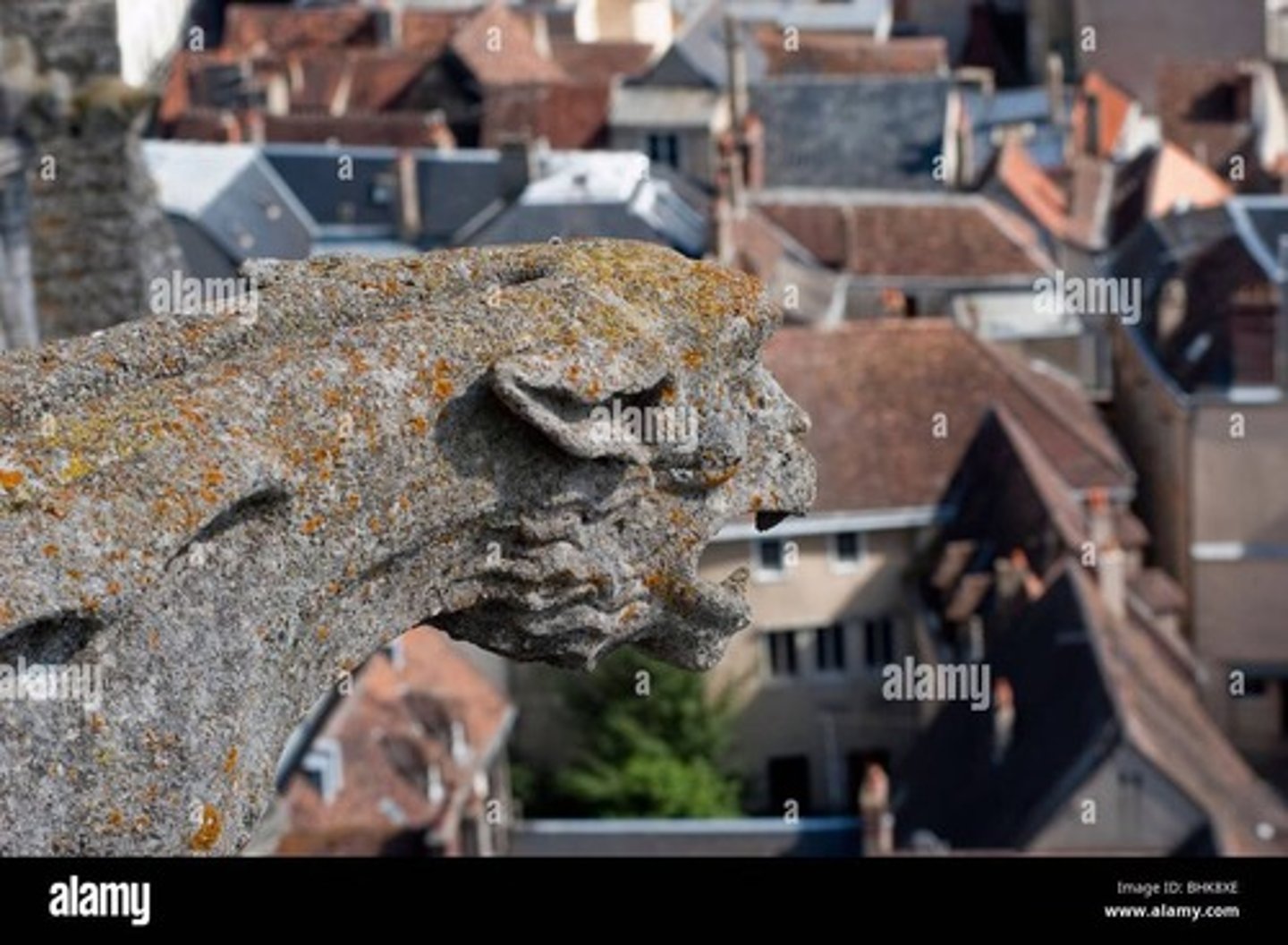
Roettgen Pietà
Sculpture showing Christ's suffering, evoking emotions.
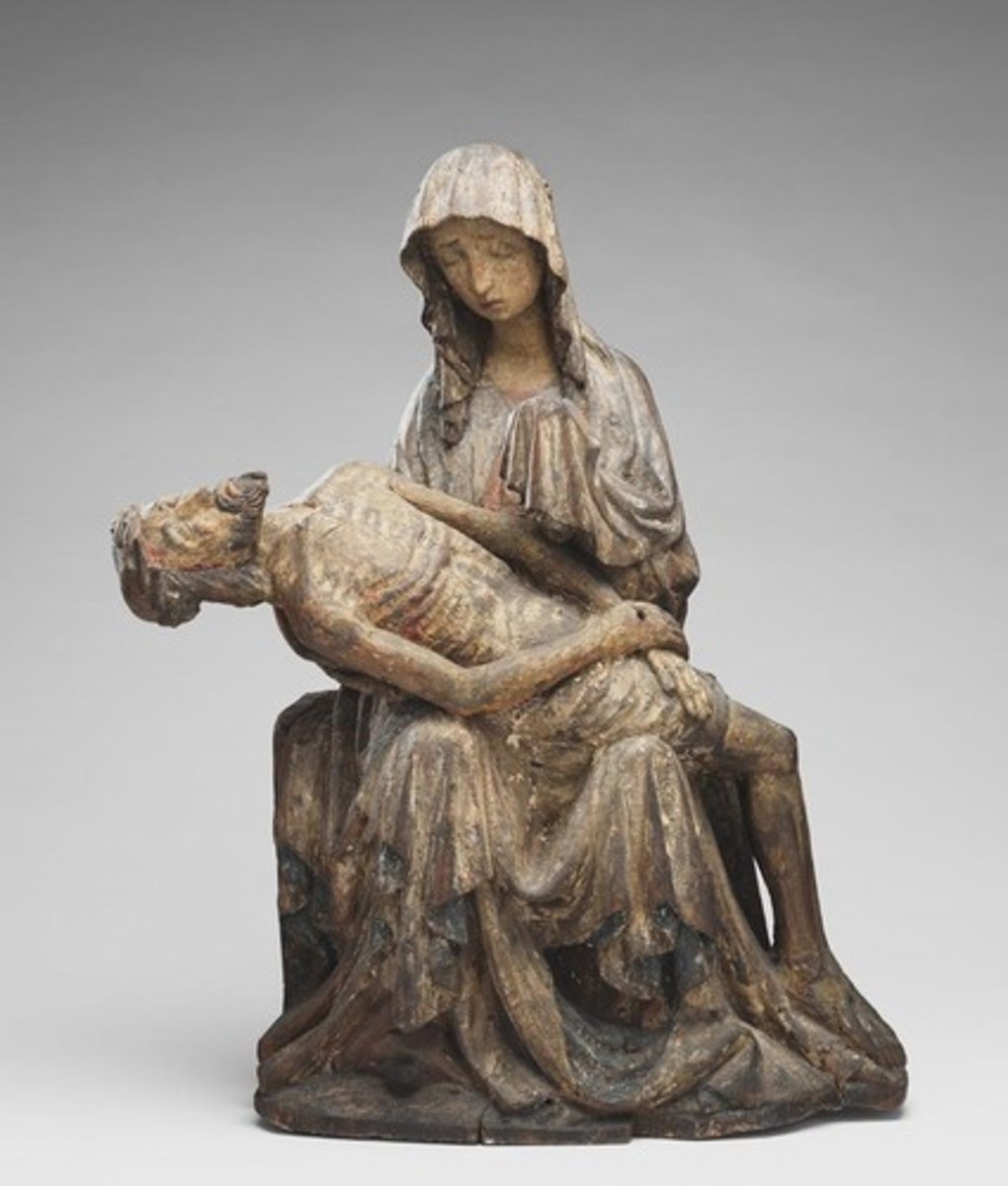
Angel Sculptures
Represent heavenly bliss with serene expressions.
Divine Light
Colored light symbolizing God's presence.
Biblical Storytelling
Windows served as visual sermons for congregations.
Technical Innovation
Methods for joining glass pieces with lead.
Symbolic Colors
Colors conveying specific spiritual meanings.
Illuminated Manuscripts
Luxurious books with intricate designs and gold.
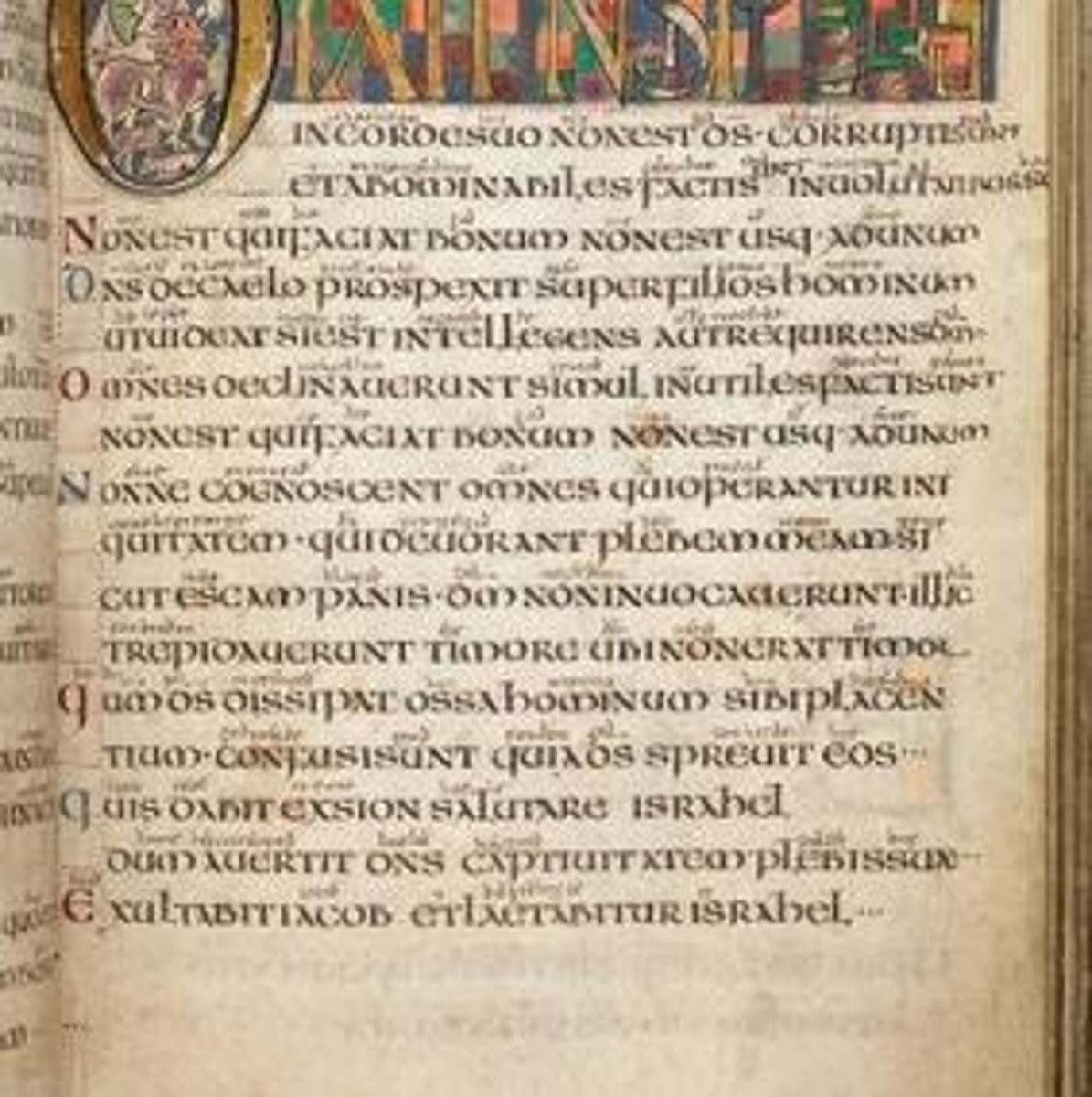
Divine Light in Art
Light as a symbol of God's presence.
Heavenly Jerusalem
Cathedrals representing the celestial city.
Sacred Narratives
Art educating the faithful through biblical stories.
Mystical Experience
Art facilitating spiritual transformation for viewers.
Ecclesiastical Power
Cathedrals symbolizing Church's authority and wealth.
Royal Patronage
Nobles funding art to show piety.
Craft Guilds
Professional associations controlling artistic production.
Emerging Literacy
Art as visual texts for the illiterate.
Gothic Revival
19th century movement reintroducing medieval aesthetics.
Artistic Inspiration
Contemporary artists influenced by Gothic themes.
Cultural Tourism
Gothic cathedrals attract millions of visitors.
Preservation Challenges
Balancing authenticity with structural stability.
Romanesque art
Characterized by a revival of large-scale architecture and monumental sculpture, heavily influenced by Roman traditions, from c. 11th to 12th century.
Characteristics of Romanesque Architecture
Includes massive stone buildings, Roman inspiration, and pilgrimage churches.
Massive Stone Buildings
Thick walls, small windows, rounded arches, and sturdy columns, inspired by Roman architecture.
Pilgrimage Churches
Large-scale churches built for pilgrims, featuring spacious naves, radiating chapels, and elaborate sculptural decoration.
Notable Romanesque Architecture
Includes Speyer Cathedral (Germany), Pisa Cathedral Complex (Italy), and Church of Sant Vincenç, Cardona (Spain).
Speyer Cathedral
Notable for its groin vaults, allowing for larger windows.
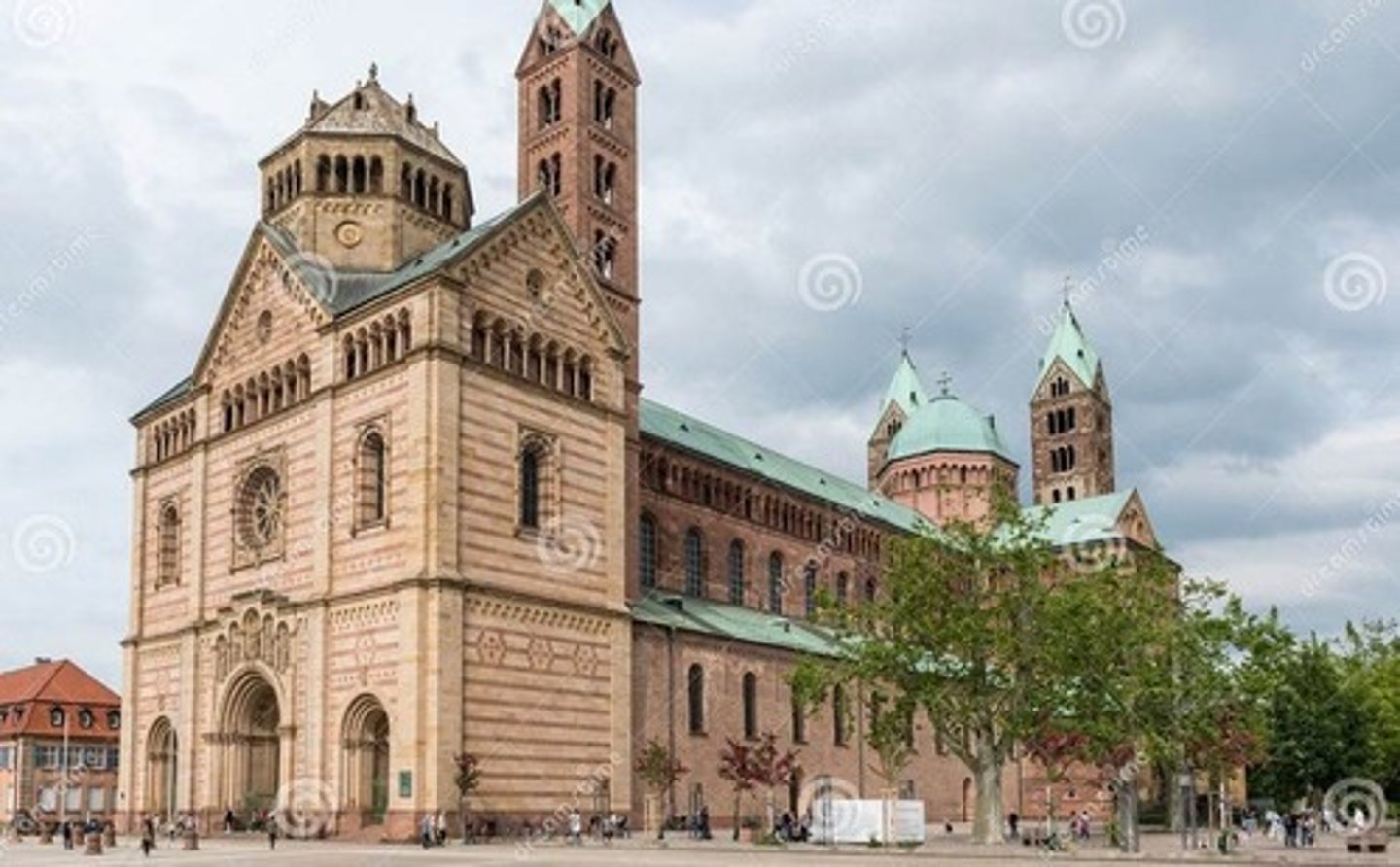
Pisa Cathedral Complex
Includes the Leaning Tower of Pisa, a freestanding campanile.
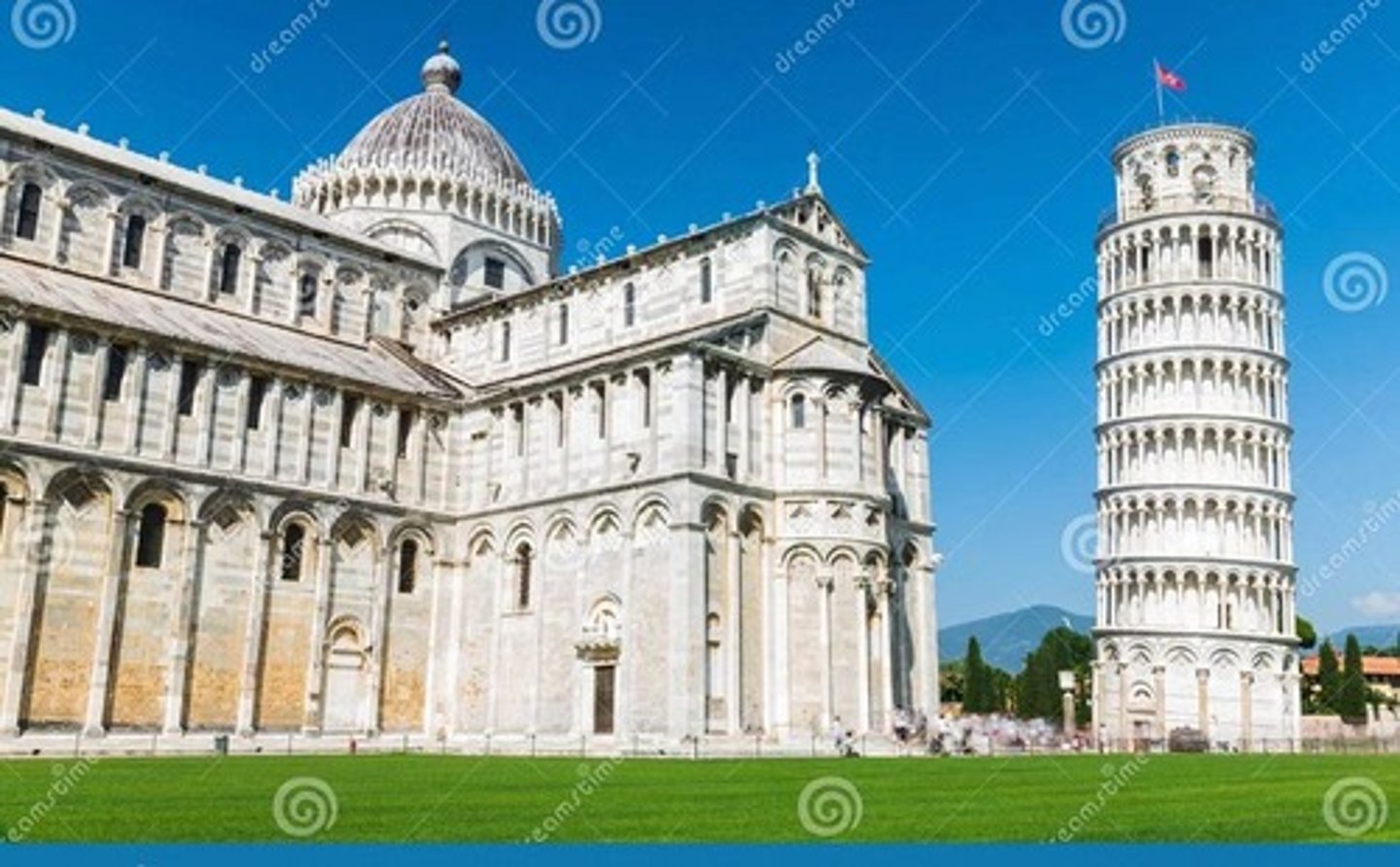
Monumental Sculpture in Romanesque Art
Revival of large stone reliefs after centuries of minimal sculpture.
Expressive Style
Highly expressive, stylized figures with elongated bodies and dramatic gestures.
Famous Romanesque Sculptures
Includes Lintel at Saint-Genis-des-Fontaines, Moissac Abbey Portal, and Gislebertus' Last Judgment.
Lintel at Saint-Genis-des-Fontaines
One of the earliest Romanesque relief sculptures, France, c. 1020.
Moissac Abbey Portal
Dramatic depiction of Christ in Majesty.
Gislebertus' Last Judgment
A powerful, detailed vision of heaven and hell at Autun Cathedral.
Illuminated Manuscripts
Featured bold colors, strong outlines, and stylized figures.

Production Centers
Many manuscripts produced in monastic scriptoria, with Cluny and Cîteaux being major centers.
Byzantine Influence
Showed influences from Byzantine iconography.
Decorative Elements
Architectural sculpture and ornamentation integrated into church designs.
Symbolic Creatures
Grotesque figures and mythical creatures served both decorative and symbolic roles.
Pilgrimage Influence
Churches designed to accommodate large numbers of pilgrims visiting sacred sites.
Relics and Reliquaries
Played a central role in church art, drawing visitors from across Europe.
Romanesque Artistic Influences
Blended Roman, Byzantine, and local traditions, creating a distinctive European style.
Legacy of Romanesque Art
Laid the foundation for Gothic architecture, creating spaces of religious devotion and monumental achievement.